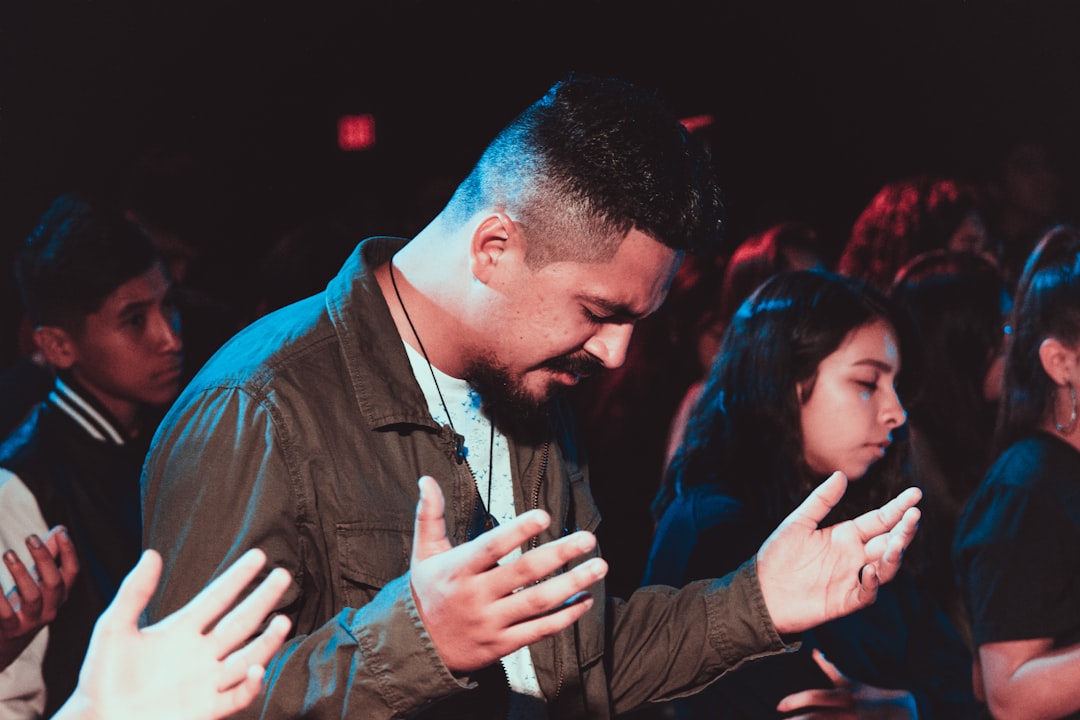Being part of the family of God is a cherished concept for many Christians, but what does it truly mean? In this post, we’ll explore the significance of this relationship and what it means for our identity, community, and values. Join us as we delve deeper into this theological concept, and discover the power and beauty of living as members of God’s family.
The Concept of the Family of God in Christianity

As a Christian, being part of the family of God means more than just attending church or participating in religious activities. It means being adopted by God as His child and being part of a spiritual family that supports, encourages, and strengthens each other in faith. In the Bible, the concept of the family of God is evident throughout both the Old and New Testaments.
One of the most well-known verses about God’s family is found in Galatians 3:26, which says, “For you are all children of God through faith in Christ Jesus.” This verse highlights the importance of faith in Christ as the way to become part of God’s family. When we believe in Jesus as our Savior and Lord, we become God’s adopted children, receiving the same love, acceptance, and forgiveness that a biological child would.

Being part of God’s family also means that we have a new identity and purpose in life. We are no longer defined by our past mistakes or societal labels, but we are now known as children of God with a new mission to love God and others. This transformative experience brings us into a community with other believers who share the same beliefs and values.
Moreover, being a part of God’s family means embracing the fellowship, support, and guidance that comes from being surrounded by other believers. It means finding belonging in a community that is centered around loving God and loving others. This collective relationship brings unity and a shared purpose to our lives, which is to glorify God through worship, service, and mission.
Overall, God’s family is a place of love, grace, acceptance, belonging, and forgiveness. Below are some key points to summarize what it means to be part of the family of God in Christianity:
- Believing in Jesus as our Savior and Lord is the way to become part of God’s family.
- Being part of God’s family means that we have a new identity and mission in life.
- We are surrounded by a community that supports and encourages us in our faith journey.
- God’s family is centered around unconditional love, forgiveness, and grace.
- Our purpose as part of God’s family is to glorify God through worship, service, and mission.
In the next section, we will explore how to embrace our identity as children of God and live out our purpose in the family of God.
Embracing Our Identity as Children of God
As Christians, we believe that we are all children of God. This means that we have a unique and special relationship with Him. It also means that we have a responsibility to live out our lives in a way that reflects this relationship.
Embracing our identity as children of God begins with accepting that we are loved unconditionally by our Heavenly Father. No matter what we have done or how far we have strayed from His plan for our lives, God’s love for us remains constant.
Believing in our identity as children of God also means that we have hope for the future. We know that our Father has a plan for us, and that plan is good. As Paul writes in Romans 8:28, “And we know that in all things God works for the good of those who love him, who have been called according to his purpose.”
Living out our identity as children of God requires us to make choices that align with God’s will for our lives. This means that we strive to live a life of faith, obedience, and service to others. It means that we rely on God’s strength and guidance as we navigate the challenges of life.
Belonging to the family of God means that we are not alone. We have a community of believers who support and encourage us. We have a family that we can rely on in times of need, and who will celebrate with us in times of joy.

In his letter to the Ephesians, Paul writes about the unity that we have as members of God’s family. He says, “Make every effort to keep the unity of the Spirit through the bond of peace. There is one body and one Spirit, just as you were called to one hope when you were called; one Lord, one faith, one baptism; one God and Father of all, who is over all and through all and in all.” (Ephesians 4:3-6)
Embracing our identity as children of God means that we are part of something bigger than ourselves. We are part of God’s plan for the world, and we have a role to play in sharing His love and grace with others.
As we continue to grow in our faith and understanding of what it means to be part of the family of God, we can find comfort and strength in knowing that we are loved, accepted, and forgiven by our Heavenly Father. We can also find purpose in serving others and fulfilling our mission as members of His family.
What it Means to Belong to a Christian Community
Belonging is a fundamental human need that drives us to connect with others. This need to belong is met when we become part of a community that shares our values and beliefs. For Christians, being part of a church community is not only fulfilling this innate need, but also living out our faith by loving and serving one another.
Here are some of the things that it means to belong to a Christian community:
-
Acceptance and Fellowship: When we become part of a church community, we are accepted just as we are. No matter what our background, struggles, or past mistakes may be, we find a place where we are loved and welcomed. We build meaningful relationships with others who share our faith, and we support and encourage each other in our spiritual journey.
-
Guidance and Support: As members of a Christian community, we have access to the wisdom and guidance of more experienced believers. We find mentors, counselors, and role models who help us navigate life’s challenges and grow in our faith. We also have a network of support that stands with us through difficult times, praying for us, and meeting our practical needs.
-
Shared Values and Traditions: Being part of a Christian community means that we have a common set of values and traditions that shape our lives and unite us in a shared purpose. We share a commitment to justice, mercy, and compassion, and we seek to live out these values together in our community and beyond. We also have traditions that remind us of our faith’s history and significance, such as baptism, communion, and worship.
-
Service and Mission: Being part of a Christian community means that we have opportunities to serve others and fulfill our mission as followers of Christ. We find ways to use our gifts, talents, and resources to make a positive impact on the world around us. We also join forces with other believers to work towards a common goal, such as supporting a local charity or spreading the gospel to the nations.
Belonging to a Christian community is an essential part of the Christian life. It gives us a sense of purpose, identity, and connection with others who share our faith. As we embrace our identity as children of God and participate in the life of the church, we grow in our relationship with God and with one another.
The Power of Forgiveness and Grace in the Family of God
« The Essential Guide to Usher Ministry in the Church
Discovering the Meaning of Living with Jesus and Believers »
As a member of the family of God, forgiveness and grace are essential components of our relationship with God and with one another. Both concepts are intertwined and are at the heart of the gospel message.
At its core, forgiveness means letting go of the hurt and anger we feel towards someone who has wronged us. It involves setting aside our desire for retribution and choosing to extend love and compassion instead. Forgiveness is not always easy, but it is a vital aspect of the Christian faith. It is the path to healing and reconciliation.
But forgiveness is not just about letting go of the wrongs done to us. It also involves being willing to ask for and receive forgiveness from others. We all make mistakes, and we all need to seek forgiveness from time to time. When we do, we are demonstrating humility and vulnerability, two important qualities that help us build deep and meaningful relationships with one another.
Grace is closely related to forgiveness. It is the unmerited favor that God bestows upon us, even though we do not deserve it. We cannot earn grace through our own efforts or good deeds; it is a gift freely given by God. Grace is what makes salvation possible, and it is what allows us to approach God with confidence and assurance.

As members of the family of God, we are called to extend grace to one another. This means loving others unconditionally, even when they do not deserve it. It means being patient and kind, and willing to forgive even when it is difficult. When we extend grace to others, we are reflecting the character of God, and we are building a community of love and acceptance.
Forgiveness and grace are powerful forces in the family of God. They have the power to transform our lives, our relationships, and our communities. As we embrace these concepts and practice them in our daily lives, we become more like Christ, and we reflect his love to the world around us.
Living as a Family of God: Values and Traditions
As part of the family of God, we share common values and traditions that help us grow in our faith and strengthen the bond between us.
Here are some of the values and traditions that we live by in the family of God:
-
Love: Love is the foundation of our faith as Christians. We are called to love God above all and love others as ourselves. In the family of God, we show love through our actions and words, and we welcome all who come to us with open arms.
-
Unity: We are one body in Christ, and we strive to maintain unity in the family of God. We put aside our differences and work together towards a common goal, which is to share the love and grace of God with others.
-
Forgiveness: Forgiveness is a key value in the family of God. We understand that we are all imperfect and make mistakes, but we also know that we can always seek forgiveness from God and from each other. By forgiving others, we are able to move forward and grow in our relationships with each other and with God.
-
Service: Service is an important tradition in the family of God. We believe that we are called to use our talents and resources to serve others and make a difference in the world. By serving others, we are living out our faith and showing the love of God to those around us.
-
Worship: Worship is a cornerstone of our faith as Christians. In the family of God, we gather together to praise God, offer thanks, and seek his guidance and wisdom. We believe that worship helps us grow in our faith and deepen our relationship with God.

As members of the family of God, we also have various traditions that help us connect with God and with each other. Some of these traditions include:
-
Baptism: Baptism is a symbolic act of dying to our old selves and being born anew in Christ. It is a way for us to publicly declare our faith and commitment to following Jesus.
-
Communion: Communion is a tradition where we remember the sacrifice that Jesus made for us on the cross. By sharing in the bread and wine, we are reminded of the love and grace of God and are able to renew our commitment to following Jesus.
-
Prayer: Prayer is an essential part of our relationship with God and with each other. In the family of God, we pray for each other, for our community, and for the world.
-
Fellowship: Fellowship is a time for us to come together and connect with each other on a deeper level. We share our joys and struggles, encourage one another, and build relationships that can last a lifetime.
By living out these values and traditions, we are able to grow in our faith and strengthen our bond with each other. As members of the family of God, we are called to support and encourage one another, to serve others, and to live out the love and grace of God in the world.
Serving and Fulfilling Our Mission as Members of God’s Family
As members of the family of God, we are called to serve and fulfill our mission here on earth. We are given unique talents and gifts that are meant to benefit not only ourselves but also those around us.
One of the key components of serving and fulfilling our mission is understanding the needs of our community. By listening to the needs of our brothers and sisters in Christ, we can find ways to meet them. This involves being intentional about building relationships with those around us. By doing so, we can provide support, guidance, and a sense of belonging to those who are struggling.
Another way to serve and fulfill our mission is by actively participating in our church community. This means attending worship services regularly, participating in small groups, and volunteering in church ministries. By doing so, we can contribute to the overall growth and well-being of our church community.

When we serve and fulfill our mission as members of the family of God, we also become an example of His love and grace to the world around us. By living out these values, we can help bring others closer to God and introduce them to the fellowship of the Christian community.
It’s important to remember that serving and fulfilling our mission is not just a one-time task, but a lifelong commitment. We must continually seek out ways to use our gifts and talents to benefit our fellow community members and bring glory to God.
As we journey together as members of the family of God, let us strive to serve one another and fulfill our mission with love, compassion, and a heart for those around us.












